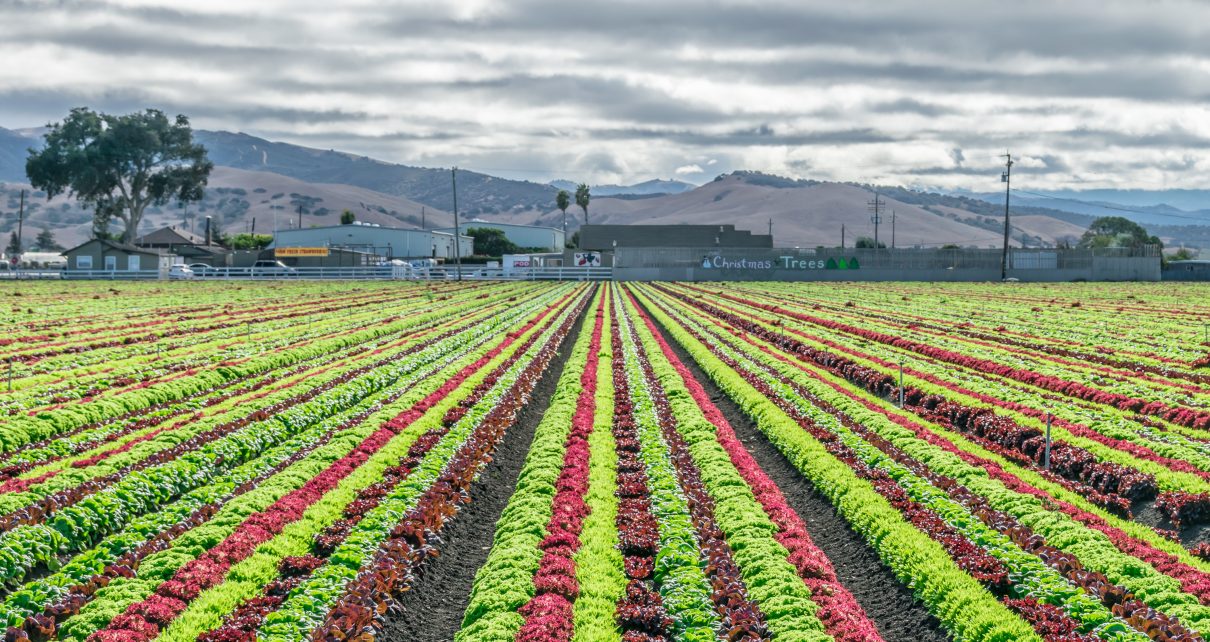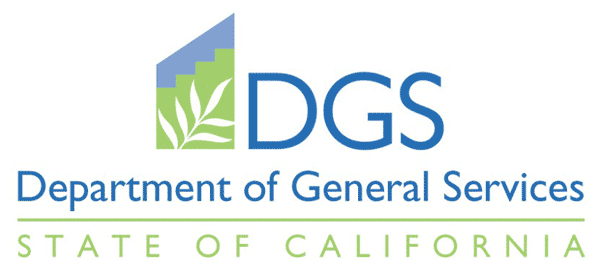
Salinas Valley agriculture: colorful lettuce crops. (Photo: Shutterstock, David A Litman)
California Environmental Farming Act
Act must provide incentives to farmers whose practices promote the well-being of ecosystems, air quality, and wildlife
By Chris Micheli, August 7, 2022 8:19 am
California has a number of formal acts in statute. Food and Agricultural Code Division 1, Part 1, Chapter 3, Article 8.5 provides the Cannella Environmental Farming Act of 1995, which is contained in Section 560 to 570. Article 8.5 was added in 1995 by Chapter 928. Section 560 names the Act.
Section 561 provides five legislative findings and declarations, including that environmental laws should be based on the best scientific evidence gathered from public and private sources, and that best scientific evidence should include the net environmental impact provided by agriculture.
Section 564 provides definitions for the following terms: “agricultural activities”; “department”; “panel”; and, “secretary.”
Section 566 requires the department to establish and oversee an environmental farming program. The program must provide incentives to farmers whose practices promote the well-being of ecosystems, air quality, and wildlife and their habitat. The department may assist in the compilation of scientific evidence from public and private sources, including the scientific community, industry, conservation organizations, and federal, state, and local agencies identifying the net environmental impacts that agriculture creates for the environment. The department must serve as the depository of this information and provide it to federal, state, and local governments, as needed.
Section 568 requires the secretary to convene a nine-member Scientific Advisory Panel on Environmental Farming to advise the secretary on the implementation of the Healthy Soils Program, and the State Water Efficiency and Enhancement Program established by the department from moneys, and to assist federal, state, and local government agencies, as appropriate or necessary, on issues relating to the impact of agricultural practices on air, water, and wildlife habitat to do four specified activities.
In addition, members of the panel must be highly qualified and professionally active or engaged in the conduct of scientific research.
Section 569 requires the department, in consultation with the panel, to establish and oversee a Healthy Soils Program. The program must seek to optimize climate benefits while supporting the economic viability of California agriculture by providing incentives, including, but not limited to, loans, grants, research, and technical assistance, and educational materials and outreach, to farmers whose management practices contribute to healthy soils and result in net long-term on-farm greenhouse gas benefits. The program may also include the funding of on-farm demonstration projects that further the goals of the program.
In addition, the department is required to implement the program and quantify greenhouse gas emissions reductions in accordance with the funding guidelines developed by the State Air Resources Board and the quantification methods developed by the State Air Resources Board. The department may pursue public and private sources to support the Healthy Soils Program. The following terms are defined: “greenhouse gas benefits”; “healthy soils”; and, “on-farm demonstration projects.”
Section 569.5 created the Climate Smart Agriculture Account in the Department of Food and Agriculture Fund, which consists of moneys made available from federal, state, industry, philanthropic, and private sources. The Controller may use the moneys in the Climate Smart Agriculture Account for cash flow loans to the General Fund.
Section 570 provides definitions for the following terms: “grant program”; “programs”; “technical assistance”; and, “technical assistance providers.” In addition, the secretary is required to make available not less than 5 percent of the funds appropriated to the department for the programs, but not more than $5,000,000, to the grant program for specified purposes.
The department is also required to establish a technical assistance grant program to provide funds to technical assistance providers to provide technical assistance to program applicants, including, but not limited to, conducting initial program outreach to farmers and ranchers, and assisting farmers and ranchers to submit grant applications under the programs to the department and with project design, development, and implementation. The grant program must do six specified activities. And, the secretary is required to award grants to technical assistance providers of no less than $10,000 and up to $100,000 annually for no more than three years.
- Proration of Estate Taxes - February 28, 2026
- Corporations Commissioner Powers - February 27, 2026
- Death Deeds in California - February 27, 2026





7 thoughts on “California Environmental Farming Act”